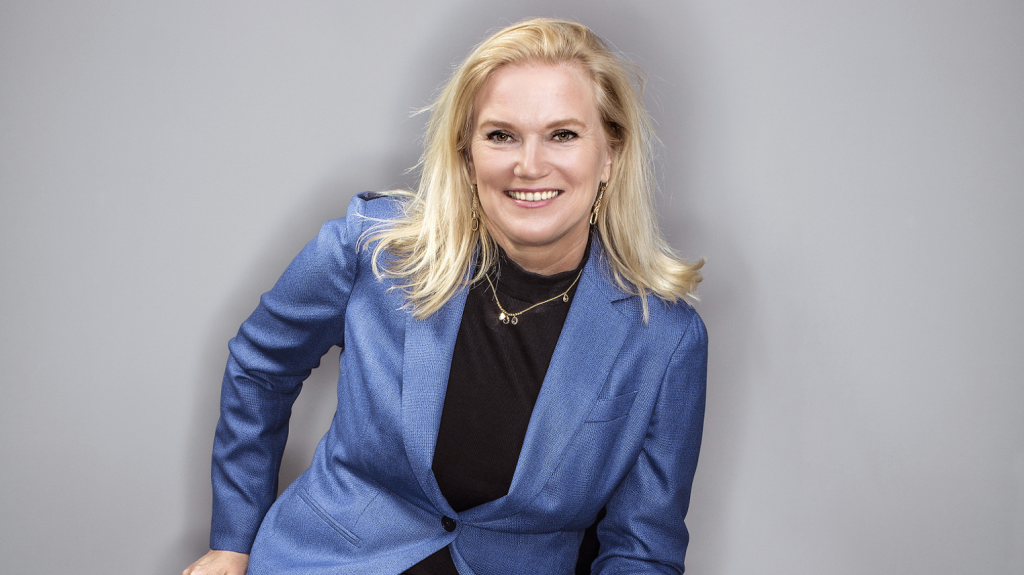Mijntje Lückerath-Rovers: ‘There are too many unsubtle opinions in the debate about women at the top’
Nightmares, daydreams, and unfulfilled wishes: in the “13 questions” section, scientists show themselves from a different side. This time: Mijntje Lückerath-Rovers, full professor of Corporate Governance at TIAS and author of the annual Dutch ‘Female Board Index’.

1. Where do you get ideas for new research?
“Two years ago, I started a Bachelor’s degree in Psychology – as an undergraduate. I can’t wait to combine my own field of study, (good) corporate governance with psychological research. In every course I take, I see common ground with behavior in the boardroom, even when it comes to developmental psychology in children. I will definitely continue with the Master’s program and am looking forward immensely to writing my Bachelor’s and Master’s thesis.”
2. What are you most proud of?
“Perhaps trite, but most of all of my three children aged 20, 21, and 22. It’s great to see what fine people they have become and I enjoy their student lives in Delft and Rotterdam from a distance.
“Professionally, I have long been very proud of completing my thesis. Six years after the research and the PhD defense ceremony at Erasmus University, I still sat in the car every day in amazement for a long time. For a long time I kept thinking, ‘How clever that I managed to do this.'”
3. What really needs to change at the university?
“There should be a focus not only on top publications, but much more on valorization, practical relevance, and top education. There needs to be more diversity among lecturers and full professors because it is very important that young students see enough role models from different backgrounds.”
4. Dutch women are known, in some circles, as “part-time princesses.” How do you spend an unexpected afternoon off?
“Since I started studying psychology, not coincidentally after my kids started studying and left home, it’s been my biggest hobby. I really enjoy it, but I sometimes play hooky to go golfing or biking. When I have a longer time off, I like to travel and take the kids to other worlds. Those are the best memories I have, and I hope to do it again soon.”
5. What aspect do you find difficult about your job?
“I have several roles: I am a full professor three days a week and I work two days as a supervisory director or authority at various companies, including NRC Media, Erasmus MC, and Blijdorp Zoo. This variety is great fun, but the problem is that my working week is somewhat fragmented and I’m part of everything to some extent, but not entirely. But I wouldn’t want it any other way.”
6. The number of women at the top of the business community rose only sparsely in recent years. What makes you lie awake at night?
“What bothers me greatly about the debate about women at the top is that there are so many people with unsubtle opinions. They don’t see that everyone is a little bit right. Indeed, it is too easy to say that women are not ambitious enough or are part-time princesses, as if it is only the women’s fault.
“Of course, our part-time culture is one of the causes, but just as much of the problem can be traced back to subconscious patterns in selection processes, our old-fashioned views of care, limited childcare, and social pressures.”
7. What’s the strangest thing you’ve ever experienced in a lecture hall?
“I mainly lecture in executive education at TIAS, so to adults. Because you also want to inspire these “students” with stories from practice, we always invite (former) directors and supervisory directors to come and tell about their experiences. These stories are particularly valuable, and there are always interesting stories, including very personal ones but sometimes also ethical issues. After such a session, I can sometimes think about them for days. Only… these lectures are held under the Chatham House Rules: you are not allowed to tell someone else what you hear there.”
8. Since 1912, we have celebrated International Women’s Day in the Netherlands in March. What else needs to change in our society?
“It would be nice if in everyday life we were not continuously confronted with all kinds of stereotypes in advertisements and in schoolbooks.”
9. Which book would you recommend to everyone?
“Bad Blood by John Carreyrou is a great non-fiction book, but also the podcast The Dropout based on it is great. It’s about Elisabeth Holmes, she founded Theranos, a company that would put an end to tedious blood tests with a new device using one drop of blood. She was the new Steve Jobs, was on the list of the richest self-made women with several billion in assets. Until everything collapsed.”
10. What wise lesson would you give to your younger self?
“Don’t worry too much about what others think of you. Make your own choices. There will always be people who criticize these or would do it differently, but who cares. It is too stressful if you constantly have to take into account what others think of you, so let it slide. That is not always easy, by the way.”
11. More women at the top in business or more women full professors?
“Both, of course. But more women full professors would be very convivial.”
12. No more meat or no more flying?
“No more meat. Traveling and seeing other cultures is my greatest hobby, I can’t imagine not discovering new worlds. I can do without meat, I am not a vegetarian but I only eat meat twice a week at the most.”
13. Women’s quota or no quota?
“Rather than a government-imposed quota, it is better for companies and organizations to set their own goals. Not necessarily because more diversity would be fairer, but because different perspectives are needed to be creative and innovative.”






